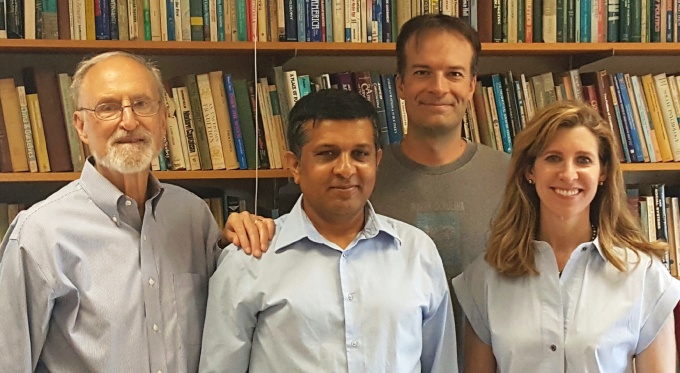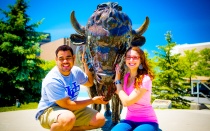Graduate Courses

Left to right: Prof. Claude Welch, Govinda Bhattarai, Prof. Jacob Kathman and Prof. Michelle Benson celebrate Govinda's successful doctoral defense
Be sure to review the course schedules for every semester, as the listed course descriptions encompass all PSC courses and may vary in terms of availability each term. For comprehensive schedules, consult the Public Course Schedule on HUB.
Course Registration
With questions about graduate courses and registration, please contact Mary E. O'Brien, graduate coordinator.
For a copy of the syllabus for a specific course, please see UB Learns or contact your instructor.
"We have great discussions in class with diverse perspectives and experiences from all corners of the world." – Sara Norrevik, PhD in Political Science
Course Descriptions
View the Graduate Catalog for a list of all graduate courses, by field: Methods of Inquiry, American Politics, Comparative Politics, International Politics and Public Law. All courses are three (3) credit hours unless otherwise stated.

